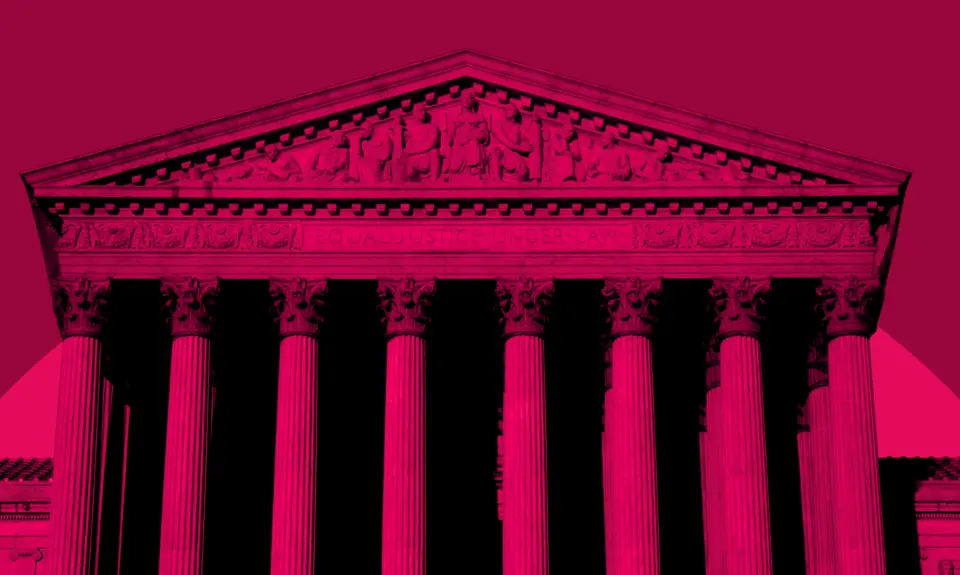“Confirmed Judges, Confirmed Fears” is a blog series documenting the harmful impact of President Trump’s judges on Americans’ rights and liberties. It includes judges nominated in both his first and second terms.
With the three Trump justices making a 6-3 majority possible, the Supreme Court severely weakened federal courts’ ability to check a tyrannical president’s blatantly unconstitutional abuses of power. Less than two weeks after millions of Americans rose up to say “No Kings,” six justices essentially responded, “Yes Kings.” The case is Trump v. CASA.
What was this case about?
Trump v. CASA was one of three consolidated cases stemming from Trump’s lawless effort to eliminate the Fourteenth Amendment’s protection of birthright citizenship. The case was technically not about that. Instead, it was about whether and when federal district courts can issue preliminary orders blocking the government from carrying out an illegal action, not just against the plaintiffs in the case, but against any individual anywhere in the country. This is an immensely important issue at a time when the judiciary is the only branch of the federal government enforcing checks and balances on a tyrannical Trump regime.
When an unlawful federal government action hurts people across the country, it is important to be able to take timely action to stop that action nationwide. This case was just one example of why it matters. Several individuals and Democratic-led states went to court to challenge Trump’s order that would strip citizenship from Americans born in the United States to parents who were not documented. Lower courts issued nationwide injunctions barring its enforcement, since it is blatantly unconstitutional.
The Trump administration appealed. It didn’t defend the legality of its actions under the 14th Amendment. Instead, it asked the Supreme Court to limit the scope of the district courts’ injunctions, to protect only people who are parties to the litigation or who live in the states that are parties to the litigation.
While the context of this case was birthright citizenship, the use of nationwide injunctions is relevant to any legal right that comes under attack from an abusive government.
How did the Trump justices rule?
In a 6-3 opinion written by Justice Barrett, the Supreme Court’s MAGA majority made it much harder for the rest of the judicial system to continue to play its vital role in checking tyrannical power. All of the far-right justices joined her opinion in full.
Justice Barrett wrote that when Congress created the system of lower federal courts in 1789, it did not grant courts the power to issue nationwide injunctions. While courts can fashion a remedy that gives “complete relief” to the parties, she wrote, a nationwide injunction generally goes much farther than that because it affects the rights of parties not before the court.
The majority noted that any party asking for a stay of a lower court injunction has to prove that it will likely suffer “irreparable harm” without relief. But they concluded that the Trump administration has met that burden. They wrote that a nationwide injunction by definition causes “irreparable harm” to the executive branch. The harm is that courts are “improperly intruding” on the executive’s right to enforce its policies against people who are not parties to the case.
The dissent pointed out that the executive branch has no legitimate interest in enforcing obviously unconstitutional policies, so it can’t be considered irreparably injured. Barrett dismissed that concern as “premature” because the legality of the Trump policy wasn’t being argued in this case.
How did the dissenting justices respond?
The three dissenting justices made clear the terrible impact of this decision. Justice Sotomayor (joined by Justices Kagan and Jackson) did not mince words:
No right is safe in the new legal regime the Court creates. … [The majority’s] holding renders constitutional guarantees meaningful in name only for any individuals who are not parties to a lawsuit. Because I will not be complicit in so grave an attack on our system of law, I dissent.
In her own dissenting opinion, Justice Jackson called the majority decision “an existential threat to the rule of law.” She wrote:
[The majority endorses] a zone of lawlessness within which the Executive has the prerogative to take or leave the law as it wishes, and where individuals who would otherwise be entitled to the law’s protection become subject to the Executive’s whims instead.
The case illustrates the importance of our federal courts to our freedom and the significance of having fair-minded judges on the federal bench.
